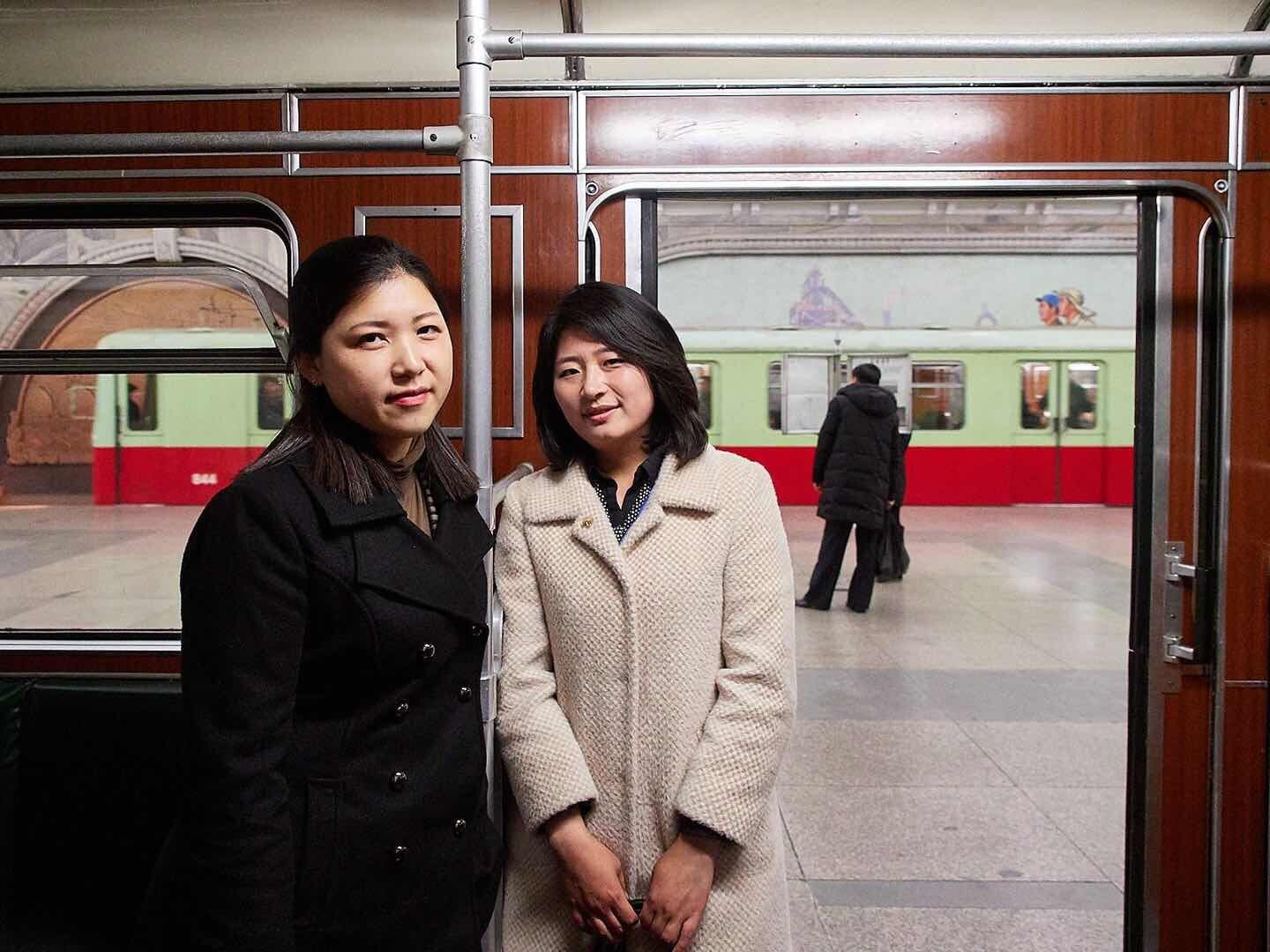Hotels of Pyongyang
is a photography project documenting the hotels of North Korea’s capital and one of the world’s most mysterious cities. Frozen in time, the architecture is typically soviet and brutalist whereas the interiors are modernist, kitsch and sometimes bizarre spaces. Staffed by stoic, uniformed and charming staff, the hotels are a world unto themselves that North Korea presents to outsiders.
“Years ago when I was living in China, I had the opportunity to work part time as tour guide to North Korea. Travelling to the Democratic People's Republic of Korea / DPRK (official name for North Korea) with semi-regularity, I became somewhat familiar with North Korea's capital (and most fawned upon) city Pyongyang, accompanying travellers to war memorials, sacred birth sites and monuments to the leaders. With virtually the entire city demolished during the Korean War, Pyongyang was rebuilt to express the ideology of its leaders and their Soviet forbearers, making the isolated city a fascinating mix of brutalist, social modernist architecture and authoritarian symbolism unlike anywhere else.
You are most likely aware that travelling to North Korea is a highly regulated affair, where you are with your local guides 24/7. Western tourists have typically stayed at one of Pyonyang's two 'deluxe hotels' - the Koryo and the Yanggakdo, both incredible structures that dominate the Pyongyang skyline. After a fully loaded itinerary during the day, travellers spend most of their downtime in the hotels eating in grand dining halls, drinking in revolving restaurants and buying state-friendly souvenirs at the bookstore. To some, spending time in the hotels may sound restrictive, but to me the hotel design, strange amenities and shy staff have always been of places with the greatest opportunities to bond with local Pyongyangites.
Despite the restricted access to the country, Pyongyang has a number of hotels that have facilitated socialist-friendly comrades during glory days of Soviet bloc tourism in the 70s and 80s. These days most visitors come from the China - the DPRK’s closest ally. With almost everything in North Korea state-run, a business like a hotel does not close down during low tourist periods, meaning the hotels in Pyongyang have survived a number of economic hardships the country has faced. Sitting on the bus venturing around Pyongyang, I had always been curious how the lesser visited hotels of the city appeared from within. Taking inspiration from the highly revered genre of Soviet architecture photography, I first got the idea to use my connection to North Korea to document these strange structures and brutalist relics.

These photos have been captured by Nicole Reed - an award-winning photographer specialising in capturing urban environments I was introduced to through a mutual friend. I was struck by Nicole’s work in Asia, in particular capturing the neon and grit of Tokyo and Hong Kong. Nicole's documentation of urban sprawl, decay and abandon shows her innate ability to source beauty in places overlooked by the untrained eye via her skill in perspective and picking up light, which pervades North Korean interiors and neon signs. Many express a degree of trepidation when considering a trip to the DPRK but Nicole was eager to board the Air Koryo flight from Beijing to Pyongyang as soon as possible.
Korean International Travel Company (KITC), which is entrusted with providing visas for tour groups, provided our Visas and invitations. I ensured our 5 day itinerary covered visits to the ten hotels that host foreign travel, as well as the three decade long work in progress - the spaceship shaped Ryugyong Hotel. While our project had government approval, adaptability is essential for any trip to the DPRK. Thankfully, our local guides Ms Ri and Ms Pak (above) worked tirelessly to assist us with gaining permission to film, especially when modest hotel staff were overcome by shyness. It was a lot of work over a short period of time but I recall the thrill of looking at Nicole's wonderful images on the flight back to Beijing, knowing that we had captured what we came for.
Australian artist Darren Sylvester has masterfully designed the book’s cover and layout Along with the hotel images, the book features a series of essays. Architectural Professor Jelena Prokopljevic comments on the distinct features of North Korean architecture and how the country's history has defined their design. North Korean academic Leonid Petrov compares the function of hotels to his native Russia / Soviet Union and how North Korean hotels are received by non-western tourists from Russia, China and beyond. And Juche Travel Services North Korean travel guide Charles Kennedy details the visitor experience of the hotels as well as insight into North Korean life.
We hope you enjoy the book. ”
- James Scullin, 2020

